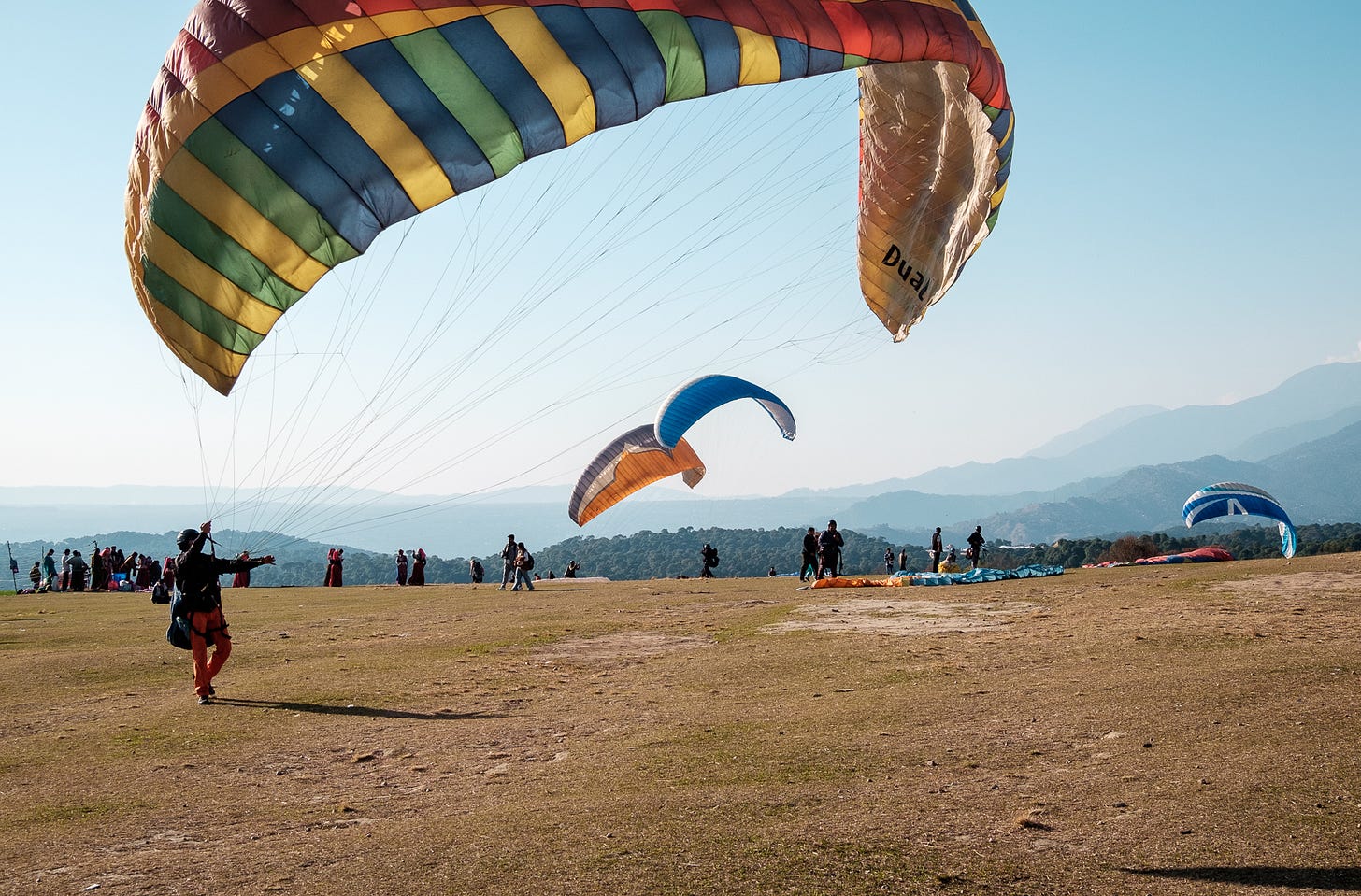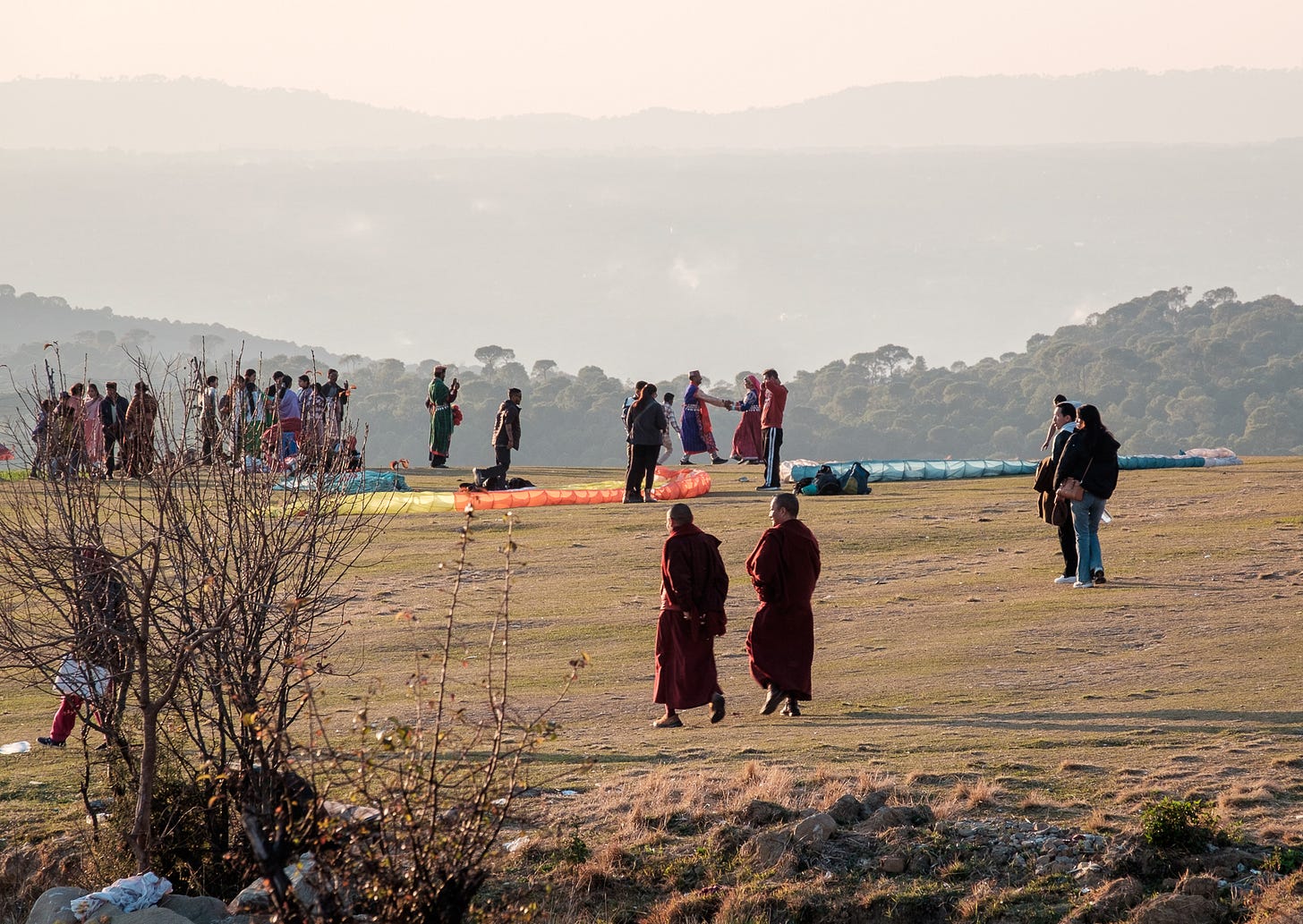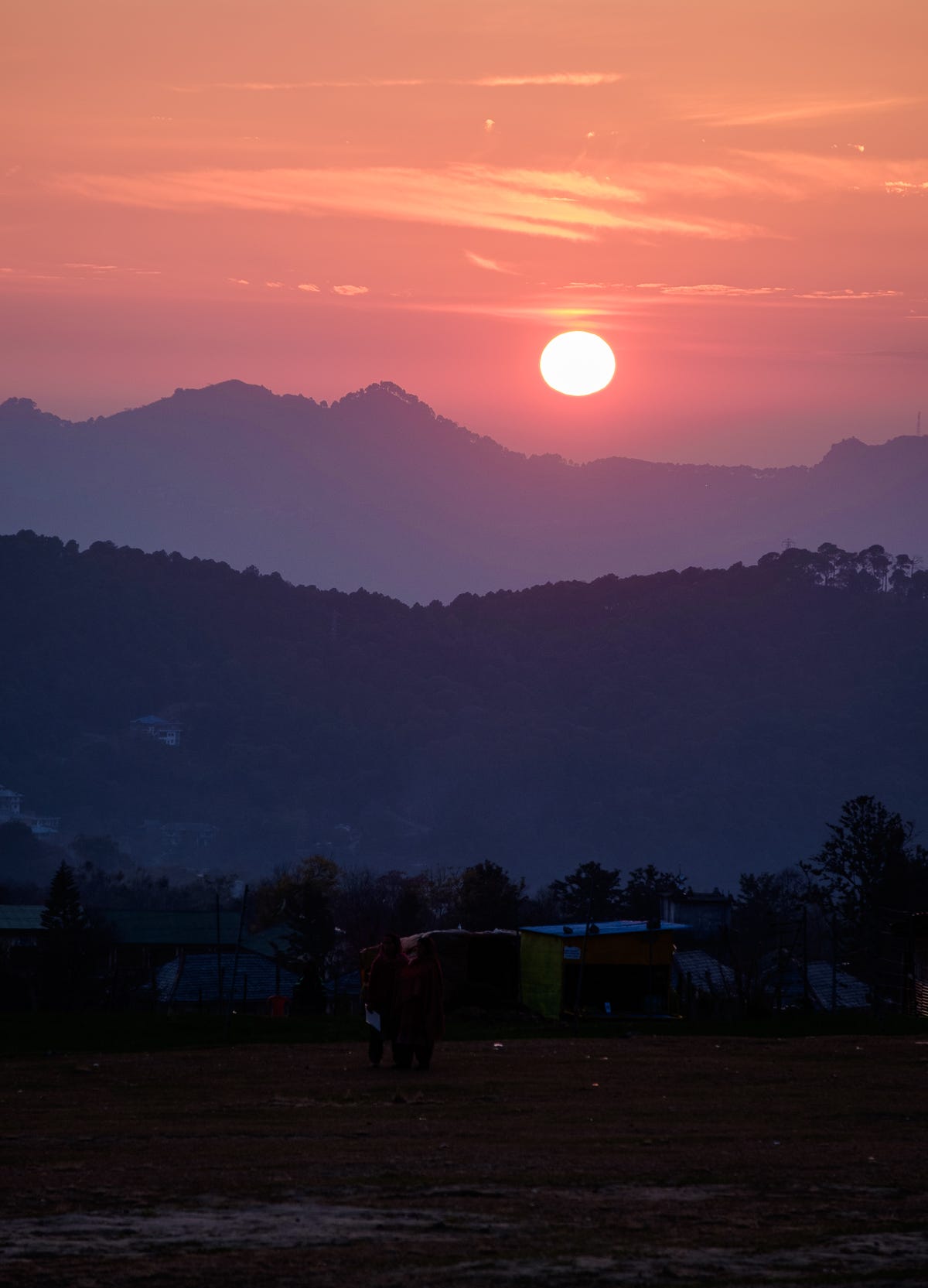“Hey! How are you today, Xavier?” said the street food seller when he saw me returning to the van with 15 liters of fresh water that I had taken at the village fountain. I was struck. For someone that can’t remember a single new name, let alone Indian ones, discovering that he remembered mine was almost shocking. And my name is certainly not an easy one, for him. I laughed, surprised, and kept carrying my precious water to the van. My smile did not fade, though. That simple, little interaction was a much bigger gift than my friend knew.
By now I had been staying in the same place – Bir, a small Tibetan colony in northern India, and a world-famous paragliding spot – for two weeks. Never, during this trip, we had spent so much time in a single place. And when we stick around longer, it’s generally because we’re in a large city that takes many days to be seen, or an isolated natural spot where we can be alone and rest. Staying in Bir was different from both: it was just life in a quiet village and the rediscovery of routine.
Most people reading this have probably clicked on the link while checking their social media or e-mails. A five-minutes interruption from an ever-repeating routine, where days look very similar to each other. There’s work, commuting, groceries, tidying up, cooking, a few social events, a little sport, and a general sense that things are often the same. We’ve been there too – Lisa and I – and agreed we wanted a break, a journey of constant novelty and amazement. What I had not expected to discover, however, is that routine brings a sense of coziness and familiarity, and that at times doing the same things - your things - is comfortable and reassuring.
The lack of routine is the defining feature of life on the road, and probably the main reason why many – or at least I – like to go on holiday. Living in a van, on the streets, is an even more atypical experience. And life on the roads of the South-Indian continent is the epitome of irregularity. Often you wake up not knowing where (or if) you will find the next quiet place to sleep. You suddenly realize you’re running out of water, or fuel, and the few plans you had for the day are useless. Driving, you don’t know where you will make it, because geographical distances have no correlation with the time it takes to tackle them: a party of water buffaloes could be walking in the street for kilometers, or a highway that is marked on every map might just not exist anymore.
Until this day, all my travels had always been a short escape from the routine of being home, and never lasted long enough to have me reflecting on what makes home feel like home. For example, I remember feeling awfully homesick while having dinner alone in Aqaba, after having just arrived there. I was backpacking in Israel, Palestine, and Jordan. But it did not matter how bad I felt: I knew I would be home in less than two weeks, and home meant something concrete and easily attainable. We have now been living in our van for 235 days, and do not really know when we will return, making the painkilling thought of a future homecoming unavailable. Traveling – as the great emotional amplifier that it is – has given us at time such strong homesickness that we were forced to stop and reflect on what it is that we missed and wanted.
It dawned on me in Bir, greeted by the man that cooked delicious Vada Pav with his wife near the paragliding landing, as I was carrying my water. I had been doing that same activity – going to the fountain for water – almost every morning during the last 10 days. I had been eating the same street food, at that same cart, every day. I had repeatedly met the same people when walking around the village or when going paragliding. Unaware, I had given myself a small routine, and the people that were part of it had included me in theirs. Just like that, in this collective intersection of routines which are shaped by human connection, I felt home, after a long time away from home.
Someone suffering from insomnia once told me “I am never asleep, and I am never awake”. This long road trip through changing cultures can sometimes give emotional insomnia: you belong everywhere, and you don’t belong anywhere. Stopping for a while meant hitting the pause button on the unsettling stimulations of daily and relentless novelty. I could sit back in comfort, and appreciate the beauty of familiarity: seeing what you have already seen, experiencing what you already know, having a part in the life of people around you. I left Bir with a heavy heart. Driving past the Tibetan monasteries, I said goodbye to home, reassured that somewhere else, another time, I’ll come home again.







I am a strong believer in the concept ‘home is where the heart is’. Feeling at home for me is definitely linked to the familiar repetitive things that one does in daily life, but also where my close family is. I always say that I am going home to Sweden - and then coming back home to Switzerland. I hope you both are feeling at home in each other’s company - but know that it is ok to sometimes feel terrible homesickness! 😌
"Ta réflexion m'a profondément touché, car elle m'a fait réaliser quelque chose à quoi je n'avais jamais vraiment pensé : à quel point la routine peut être réconfortante et comment, en fin de compte, c'est elle qui fait de n'importe quel lieu une maison. Cette idée me marque particulièrement, car elle donne une nouvelle dimension à ce que signifie ‘se sentir chez soi’. Je te souhaite de trouver encore de nombreux endroits où cette sensation pourra t’habiter. Et quand la nostalgie de la maison se fera sentir, j’espère qu’une part de toi la ressentira aussi pour ta maison dans la Petite Patrie